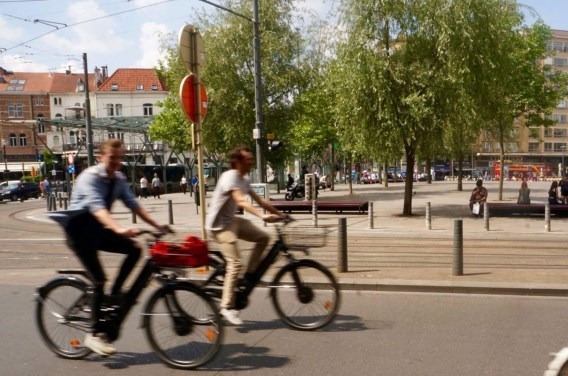The Brussels sharing mobility platform Billy Bike has seen the use of its electric bicycles double since the beginning of the lockdown on 18 March.
In March, Billy Bike announced that, for two weeks, it would make them free of charge for 500 minutes for all people in professions that were essential to keep the city running, such as people with a medical or paramedical profession, but also the fire department, police officers, postmen, pharmacists, supermarket staff, STIB and Bruxelles Propreté.
That turned out to be such a great success that the company was even recording a loss, at one point even. The people who carry out these professions can now count on a package deal in which they use the Billy Bikes, reports Bruzz.
Other sharing services, such as Uber and Lime, decided to pull their sharing vehicles from the streets because of the new coronavirus (Covid-19), but Billy Bike decided to keep its services available, a risk that paid off, as the startup received twice as many registrations and saw the use of their bicycles double as well, CEO Pierre de Schaetzen told La Libre.
Related News
- Coronavirus: Brussels sharing mobility supports health care staff
- Coronavirus: 134 new deaths, 123 hospital admissions in Belgium
- Coronavirus: up to 75% less traffic in Brussels in March
During the day, there is a strong concentration of bookings around hospitals and supermarkets, he said. "During the evenings and weekends, there are more often longer rides in the Forêt de Soignes or along the Channel, often just two people," said De Schaetzen.
The reluctance to take public transport for health reasons at the moment is the first reason for the increase in Billy's figures, according to De Schaetzen.
The decrease in the number of cars in Brussels, "which makes it more pleasant and safer" in the eyes of its inhabitants, could also be a reason, he said. "We even see that car drivers are also using bicycles at the moment," De Schaetzen said. "Many people are discovering cycling as a mode of transport in Brussels," he added.
Maïthé Chini
The Brussels Times

